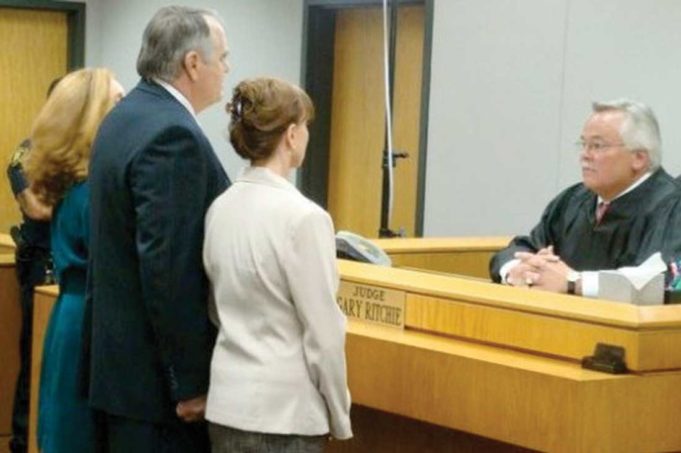A court in southwestern Fort Worth is under investigation after a surprise county audit noted questionable handling of finances, which has already led to the firing of a longtime manager.
Justice of the Peace Gary Ritchie fired former Court Manager Shelly Ables in November after the audit criticized the office’s lax bookkeeping and the mishandling of deposits and receipts in court-related financial dealings. She responded with a hand-written letter to Ritchie dated Nov. 6 denying “the allegations and the conclusions it contains.”
The Tarrant County Criminal District Attorney’s Office continues to inspect the situation.
“There is an ongoing investigation that has been underway based on a prior audit,” said DA Spokesperson Samantha Jordan. “Since it is ongoing, we can’t comment on details.”
Ritchie did not wish to comment for this article, said his current court manager, Jennifer Montgomery.
County Auditor Renee Tidwell sent an auditor to Ritchie’s Southwest subcourthouse on Granbury Road in September of 2016 to perform a cash count, a mini-audit whereby auditors visit county offices to ensure the tills aren’t short.
“We do surprise cash counts,” Tidwell told the Fort Worth Weekly. “That’s part of our normal process that we do for all fee offices that collect revenue. When the [auditors] show up, they are given access to the tills or the cash register, and they count the cash and they usually look in the safe and count what’s in the safe.”
Subsequent scrutiny, according to the audit report, uncovered “significant weaknesses in the controls over receipts and disbursements combined with a lack of segregation of duties and management oversight.”
Ritchie, who also serves as a municipal judge in White Settlement, did not allow auditors to access the county safe on their first visit, Tidwell said. The judge said that a warrant and seized property, including a handgun, were in the safe and that “he was uncomfortable with us having access” to them, she said.
Auditors returned to the office on another day and were denied access to the office safe again, Tidwell said.
The only times that Tidwell can recall county auditors being denied access to county-owned safes have occurred in Ritchie’s subcourthouse, Tidwell said. He denied access to the safe in the late 1990s as well, she said. “After that, we got it squared away and went along for many years without an issue, and then this arose,” she said.
In the recent case, Tidwell sought clarification through the district attorney’s office and was assured that county auditors have legal access to county property, including safes.
Ritchie’s forbidding of access “is one of the incidents that is under investigation,” the DA’s Jordan said.
In Ritchie’s termination letter to Ables that was obtained by the Weekly, the judge rattles off a long list of alleged violations involving haphazard record keeping. Deposits into the subcourthouse’s bank account were not made on time, Ritchie writes, and were sometimes short by thousands of dollars when compared to the receipts.
Tidwell and two other county auditors showed up at the subcourthouse at 10:15 a.m. on Oct. 7, 2016, to discuss some of the missing deposits, according to the termination letter.
“The audit staff specifically asked you several times whether there were any receipts that had not been deposited,” Ritchie writes. “Each time, you said, ‘No.’ A few days later, it was learned that a deposit in the amount of $5,643.20 was made on Oct. 7, 2016, at 11:37 a.m. via the drive-thru” at a nearby bank.
Ritchie writes that he did not know who made the bank deposit at that time but that the deposit could not have been made by one of his employees since they were all in the office at the time.
A week later, according to the letter, Ables’ attorney called Ritchie and told the judge that “two deposits were found in a paper bag” in Ables’ home garage.
A constable and deputies went to Ables’ house and counted more than $16,000 in deposits, including more than $9,000 in cash, Ritchie writes.
Ables could not be reached for comment for this article.
Justices of the peace preside over lawsuits and civil and criminal cases, including Class C criminal misdemeanors such as traffic tickets and hot checks. The Texas Ethics Commission fined Ritchie $250 for failing to file a campaign contributions report on time in 2010.













Where there’s fire there might not be smoke.